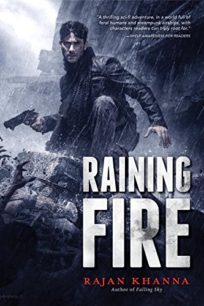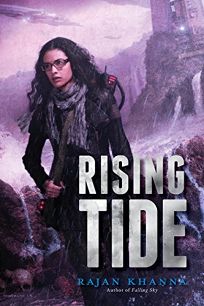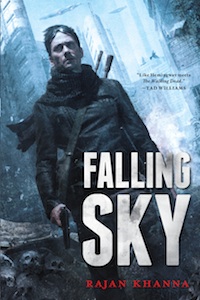Ghosts and Grinches
This little exercise got me thinking about supernatural creatures in holiday stories. Even if you discount Santa Claus (who is rather supernatural when you think about it) that still leaves a number of supernatural creatures like Frosty the Snowman, Clarence the Angel, Scut Farkus (he had yellow eyes). But my favorite holiday-associated supernatural creatures would have to be the ghosts from The Christmas Carol.
The Christmas Carol has to be one of my favorite holiday stories of all time – I’ve read it, listened to it on audio and even seen a one man production by Sir Patrick Stewart (who wasn’t a sir at the time). Originally published in 1843, the story has remained popular ever since and has been adapted and reimagined into various forms. I would be surprised if anyone out there didn’t know the basic story.
But it’s the ghosts that add the supernatural edge, even if you believe Scrooge’s adventures all to be a dream generated by his guilty conscience. There’s Marley’s ghost, of course, with its kerchief to keep up its dropping jaw and the chains about his body with cash boxes, padlocks and ledgers all bound up in them. Marley is quite arresting by himself, but then the Christmas ghosts surpass him.
First, of course, is the Ghost of Christmas Past. Though depicted variously in movies and adaptations, Dickens’ version is of an androgynous creature in white robes. Upon its head is a flame like that of a candle, and it carries a metal cap like a candle extinguisher. The ghost takes Scrooge back to his childhood, to his apprenticeship with Fezziwig and to the breakup of his relationship with his fiancé, Belle. The ghost is dispelled with Scrooge, in anger, thrusts the cap down over the ghost’s head, extinguishing his flame.
The Ghost of Christmas Present is much more welcoming, a so-called giant garbed much like Father Christmas. Dickens’s brilliant touch is that each ghost lives for only that year, only that present, so that the one that visits Scrooge has more than 1800 brothers. Things turn sad as they visit Tiny Tim and we learn that if things don’t change, he’ll die. Then the ghost reveals two loathsome children clinging to his robes.
“‘Forgive me if I am not justified in what I ask,’ said Scrooge, looking intently at the Spirit’s robe,’ but I see something strange, and not belonging to yourself, protruding from your skirts. Is it a foot or a claw.’
‘It might be a claw, for the flesh there is upon it,’ was the Spirit’s sorrowful reply. ‘Look here.’
From the foldings of its robe, it brought two children; wretched, abject, frightful, hideous, miserable. They knelt down at its feet, and clung upon the outside of its garment.
‘Oh, Man. look here. Look, look, down here.’ exclaimed the Ghost.
They were a boy and a girl. Yellow, meagre, ragged, scowling, wolfish; but prostrate, too, in their humility. Where graceful youth should have filled their features out, and touched them with its freshest tints, a stale and shrivelled hand, like that of age, had pinched, and twisted them, and pulled them into shreds. Where angels might have sat enthroned, devils lurked, and glared out menacing. No change, no degradation, no perversion of humanity, in any grade, through all the mysteries of wonderful creation, has monsters half so horrible and dread.
Scrooge started back, appalled. Having them shown to him in this way, he tried to say they were fine children, but the words choked themselves, rather than be parties to a lie of such enormous magnitude.
‘Spirit. are they yours.’ Scrooge could say no more.
‘They are Man’s,’ said the Spirit, looking down upon them. ‘And they cling to me, appealing from their fathers. This boy is Ignorance. This girl is Want. Beware them both, and all of their degree, but most of all beware this boy, for on his brow I see that written which is Doom, unless the writing be erased. Deny it.’ cried the Spirit, stretching out its hand towards the city. ‘Slander those who tell it ye. Admit it for your factious purposes, and make it worse. And abide the end.’
‘Have they no refuge or resource.’ cried Scrooge.
‘Are there no prisons.’ said the Spirit, turning on him for the last time with his own words. ‘Are there no workhouses.'”
Of course the most disturbing is the Ghost of Christmas Yet to Come, the black robed, hooded figure with the gaunt, pointing hand. He shows Scrooge the future, people delighting in Scrooge’s death, people not caring. And he shows Scrooge the death of Tiny Tim. This completes Scrooge’s transformation, bringing him back a changed man.
And while it’s true that the Ghosts are my favorite supernatural creatures associated with the holiday, I would be remiss in not mentioning The Grinch here. While not strictly supernatural, he’s a Seuss creation and so is inherently magical. I have to admit to being enamored with the animated Boris Karloff version. Like Scrooge, the Grinch undergoes a transformation, in his case facilitated by the inhabitants of Whoville. There are a number of similarities between the two works – a young individual who serves as the connection for both misers, a feast at the end. Maybe that’s why I love them both so much.
And a few Dickens quotes:
“It is required of every man,” the ghost returned, “that the spirit within him should walk abroad among his fellow-men, and travel far and wide; and, if that spirit goes not forth in life, it is condemned to do so after death.” – A Christmas Carol, Charles Dickens
“An idea, like a ghost, must be spoken to a little before it will explain itself.” – Charles Dickens
“The whole difference between construction and creation is exactly this: that a thing constructed can only be loved after it is constructed; but a thing created is loved before it exists.” – Charles Dickens









 Rising Tide, the sequel to Falling Sky, was released on October 6, 2015.
Rising Tide, the sequel to Falling Sky, was released on October 6, 2015.  Falling Sky, my first novel, came out October 7, 2014 from Pyr. It's an adventure story set in a post-apocalyptic future with airships.
Falling Sky, my first novel, came out October 7, 2014 from Pyr. It's an adventure story set in a post-apocalyptic future with airships.
Leave a Reply